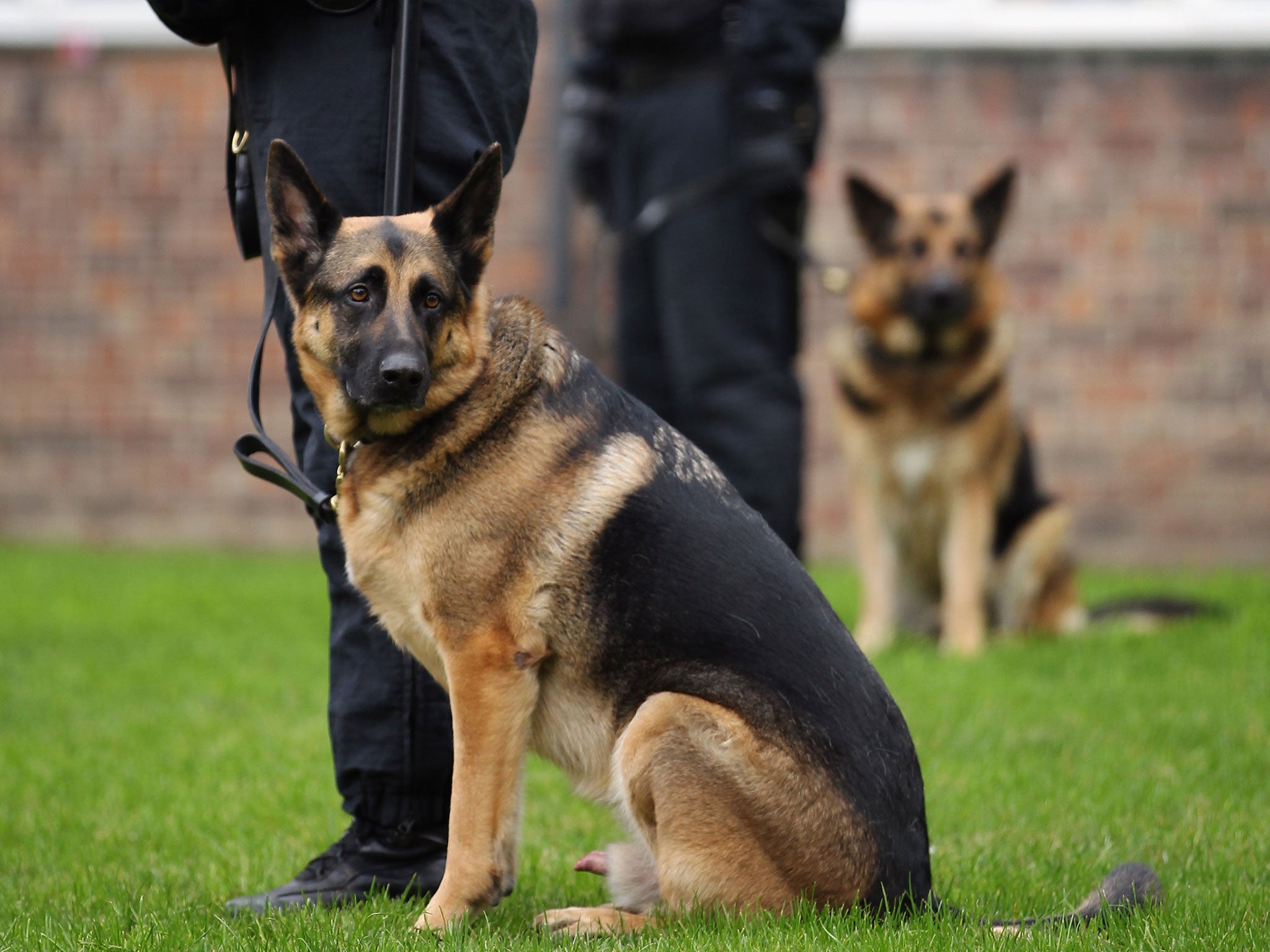Airport sniffer dogs are better at hunting out cheese and sausages than drugs, report finds
The team of detector hounds were trained to search for illegal drugs, tobacco, cash and "bush meat"

Your support helps us to tell the story
From reproductive rights to climate change to Big Tech, The Independent is on the ground when the story is developing. Whether it's investigating the financials of Elon Musk's pro-Trump PAC or producing our latest documentary, 'The A Word', which shines a light on the American women fighting for reproductive rights, we know how important it is to parse out the facts from the messaging.
At such a critical moment in US history, we need reporters on the ground. Your donation allows us to keep sending journalists to speak to both sides of the story.
The Independent is trusted by Americans across the entire political spectrum. And unlike many other quality news outlets, we choose not to lock Americans out of our reporting and analysis with paywalls. We believe quality journalism should be available to everyone, paid for by those who can afford it.
Your support makes all the difference.Sniffer dogs at Manchester Airport failed to detect Class A drugs yet were able to locate holidaymakers' cheese and sausages, according to a new report.
The team of detector hounds were trained to search for illegal drugs, tobacco, cash and "bush meat", although they did not sniff out any heroin or cocaine during a six-month period studied by the Independent Chief Inspector of Borders and Immigration.
The six dogs, who cost £1.25 million to house and operate, each had a speciality and were trained to detect either money, products of animal origin (POAO), tobacco or drugs.
Over the period the dogs helped seize more than 46,000 cigarettes, 60kg of tobacco, 181kg of illegal meat, and £28,000 cash.
The report said: "Heroin and cocaine were assessed as 'very high' priority within both air passengers and freight.
"Yet, according to the data provided by Border Force, the dogs had made no Class A drugs detections in the period November 2014 to June 2015.
"When deployed, the POAO dog made multiple accurate detections, but most were of small amounts of cheese or sausages, wrongly brought back by returning British holidaymakers and posing minimal risk to UK public health."
The report said while the deterrent effect of having sniffer dogs was difficult to measure, the seizures alone represented a low return on the £1.25 million spent on new kennels and the costs of operating the unit.
The report concluded there needed to be a review of which flights were targeted and how the dogs were best used.
The dogs were successful on three occasions at detecting illegal drugs, finding small amounts of Class B substances. They also found tablets of human growth hormone, Viagra and Bromazepam.
Manchester Airport is the third largest in the UK and handled 22 million passengers between 2014 and 2015, with flights arriving from 200 destinations - the most of any UK airport.
The inspection looked at operations in immigration and customs, which included both passenger and freight controls.
It found officers complied with the Border Force's "Operating Mandate" although there were gaps in their training for immigration duties.
Many of the specially trained customs officers raised concerns that they were being deployed as "queue busters" at passport control where their specialist skills were not put to best use, the report said.
In total the inspector made six recommendations for improvement.
The Home Office said it fully accepted all of the recommendations and it was "pleased" that staff were found to be complying with the mandate while working with "professionalism and effectiveness".
A spokeswoman said: "Security at the border is our priority and the chief inspector recognises that staff at Manchester Airport are conducting all required checks at passport control, while at the same time responding efficiently to increased passenger numbers.
"However, we acknowledge that further improvements need to be made.
"We welcome the report's findings and accept all the recommendations - many of which, including a new recruitment and training programme, are already being implemented."
Press Association
Join our commenting forum
Join thought-provoking conversations, follow other Independent readers and see their replies
Comments